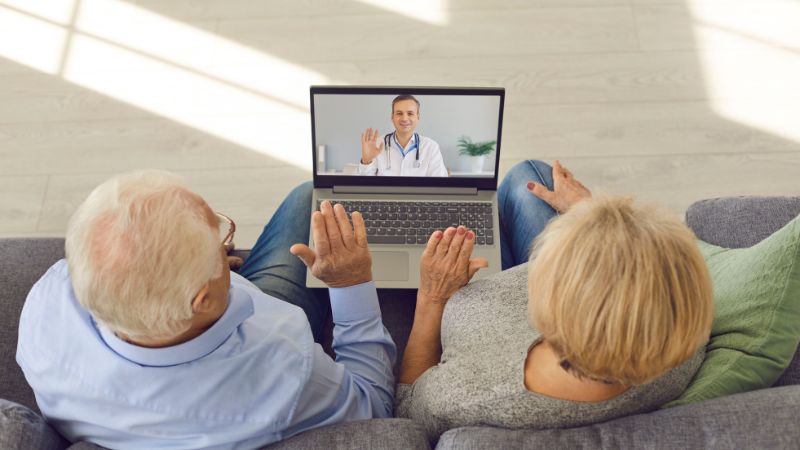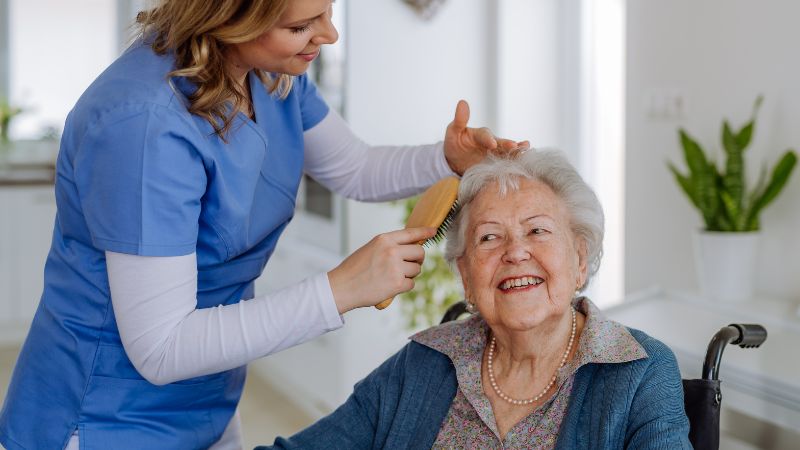
Electronic schedules that allow relatives to sign up for tasks, medication reminder apps, and GPS trackers are just a few of the myriad of ways that technology can help caregivers. When technology is utilized to the max, these professionals can better perform their responsibilities without fear of burnout.
Currently, family and professional caregivers have a wide range of technology at their disposal to help them provide the best care to seniors. Considering that technology evolves rapidly, it’s realistic to presume that future advancements will make it even easier to provide quality care.
Helpful technology is available now to caregivers and ranges from websites and apps to devices. Even the elderly have an opportunity to harness the power of technology to provide effective self-care. In fact, older people are demanding technology solutions to make their lives easier.
Many types of digital resources can be used in a home environment to lighten a caregiver’s load. Today’s technology can be used to ensure older loved ones stay secure, remain as independent as is safely possible, receive the right type of care and, overall, live a high quality of life.
1. Personal Computer
Around for decades, the personal computer has evolved significantly over the last several years. As a device that is capable of storing and processing large amounts of information, like care notes, and that can be used to access the internet, the personal computer is essential for today’s caregivers.
Uses for a computer include email, which allows caregivers and seniors to communicate. Caregivers also find a computer necessary to participate in online caregiver support groups. Internet research may be conducted to gather valuable healthcare information. Digital family photo albums may also be shared.
2. Tablet
Sharing features of a personal computer, the tablet is a portable handheld device that can aid a caregiver on the go. Caregivers browse the web from any room, use email, and take and share photos or videos. Apps may be downloaded for medication management and appointment scheduling.
Tablets may be used for leisure purposes too. Caregivers may use a tablet to stream movies and watch them together with the care recipient. Similarly, caregivers have access to an assortment of challenging games via the tablet, which they can play with a senior and encourage mental stimulation.
3. Caregiver Coordination Systems
A caregiver coordination system can be accessed from a personal computer or a tablet. As a shared electronic log, the system may be used to list doctors’ appointments and caregiving needs. Caregivers, for instance, might request help on a certain day, and family or friends can sign up.
4. Virtual Medical Visit
Caregivers can discuss the senior’s healthcare with medical professionals via a virtual visit. Frail or ill seniors and their caregivers are no longer burdened with the need to travel to doctors’ offices for a consultation or to seek treatment for a range of minor health conditions.
One in four seniors visited a doctor using this technology during the first three months of the Covid-19 pandemic. Virtual medical visits can be conducted not only on a computer but on a smartphone or tablet. The device must be able to connect to the internet and feature audio-video capabilities.
5. Emergency Response Systems
Seniors with limited mobility who fall or otherwise injure themselves may struggle to call their caregiver for help. An emergency response system worn by the senior is the solution, as it notifies the caregiver during the emergency and allows her to provide immediate assistance.
6. Motion Sensing Technology
Caregivers may monitor their care recipients without being intrusive when they utilize motion sensing technology. Depending on the specific type of sensor, it can alert the caregiver when the senior has stopped moving for a long period of time. Other sensors keep track of unusual activity.
7. Medication Reminders
Many seniors suffer from multiple ailments and therefore consume a number of medications. Confusion about which drugs to take and when can arise. Medication reminders deliver prompt notifications when it’s time to take certain pills, thus reducing the caregiver’s risk for error.
8. GPS Devices
Caregivers have reason to worry when their elderly loved ones, especially those with memory issues, travel away from home. While smartphones can provide notification of their whereabouts, seniors may not be familiar with using the necessary features. GPS trackers are the solution.
Wearable GPS trackers can be worn on the wrist or inserted into a shoe, thereby allowing the caregiver to keep track of the senior without inconveniencing them. When the elderly loved one goes outside a specific location, the caregiver will receive an alert via text, email, or phone call.
When choosing technology to support the caregiving process, it is important to utilize those that are easy for the caregiver to use and that meet caregiving needs. User-friendly and inexpensive technology, as well as those that are proven to be reliable, are also important considerations.

Family caregivers have a wealth of technology options to simplify caregiving duties. Even though technology is a monumental benefit, some types of care require a human touch. Assisting Hands Home Care provides compassionate home care services to seniors in the comfort of home.
Seniors, especially those who live alone or are homebound, benefit from our companion care. Our professional caregivers take time to build bonds with the elderly adults we serve. Relationships are strengthened as caregivers initiate conversations, play games, go on outings, or share hobbies.
While companion care from Assisting Hands Home Care meets the social and emotional needs of seniors, we also take care of the physical aspects of daily life. Our caregivers provide support with personal hygiene, meal preparation, transportation, medication reminders, and light housekeeping.
Assisting Hands Home Care offers comprehensive non-medical home health care to seniors living in Hinsdale, Downers Grove, Illinois and surrounding areas (See All Served Areas). Schedule in-home consultation today with the most reliable providers of quality senior care and start your elderly loved one on a path to increased wellness.















